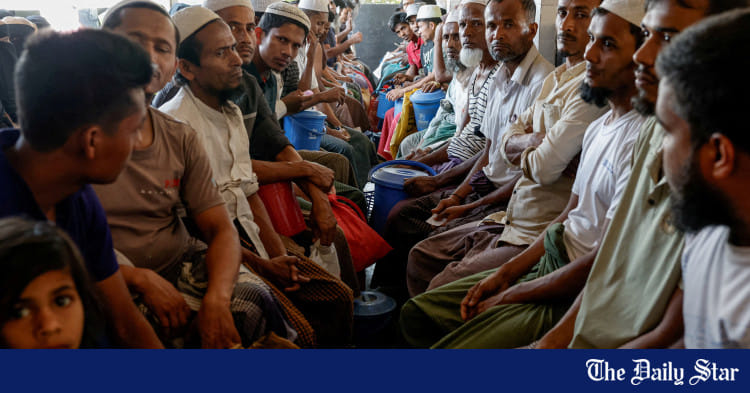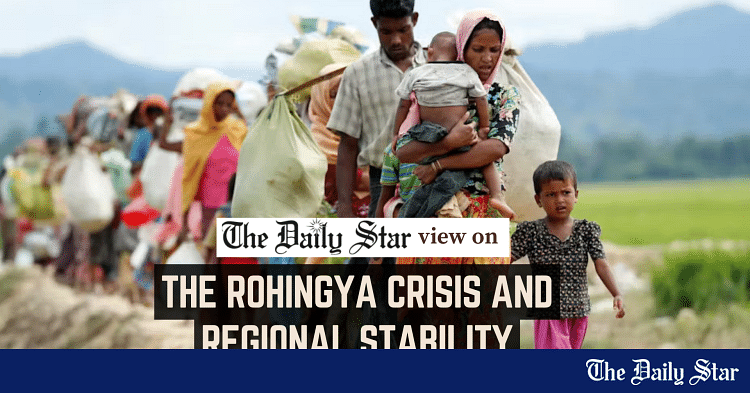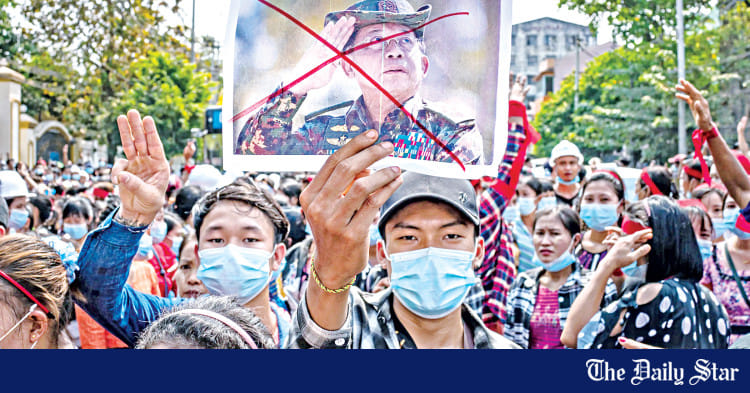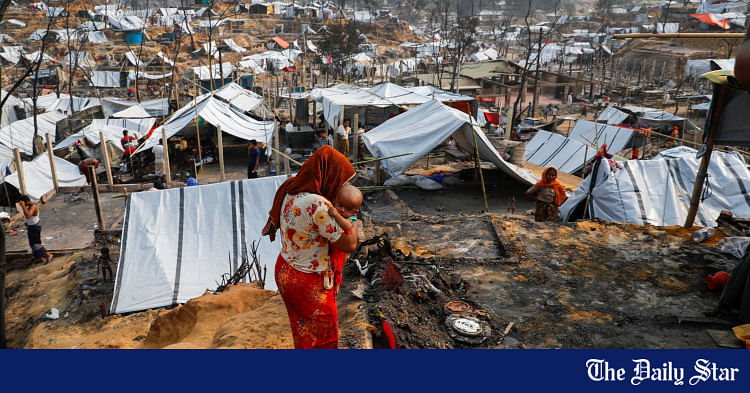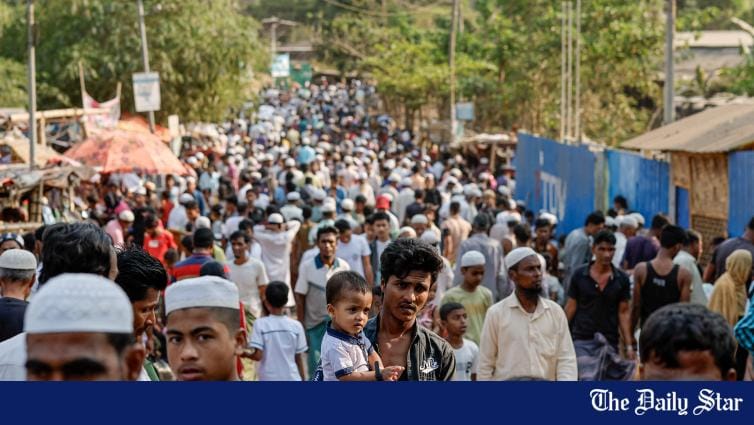Saif
Senior Member
- Messages
- 14,863
- Reaction score
- 7,675
- Origin

- Residence

- Axis Group

- Copy to clipboard
- Thread starter
- #341

Extreme desperation may have led to 400 Rohingya refugees dying at sea, UN agency says
A dire humanitarian situation in Myanmar and Bangladesh may have led to deaths of an estimated 427 Rohingya refugees at sea, the United Nation's refugee agency said on Friday. "The dire humanitarian situation, exacerbated by funding cuts, is having a devastating impact on the lives of Rohingya, wi
Extreme desperation may have led to 400 Rohingya refugees dying at sea, UN agency says
REUTERS
Published :
May 23, 2025 20:35
Updated :
May 23, 2025 20:35

Rohingya refugees hold placards while attending a Ramadan Solidarity Iftar to have an Iftar meal with United Nations Secretary-General Antonio Guterres and Muhammad Yunus, Chief Adviser of Bangladesh Interim Government, at the Rohingya refugee camp in Cox's Bazar, Bangladesh, March 14, 2025. Photo : REUTERS/Mohammad Ponir Hossain/Files
A dire humanitarian situation in Myanmar and Bangladesh may have led to deaths of an estimated 427 Rohingya refugees at sea, the United Nation's refugee agency said on Friday.
"The dire humanitarian situation, exacerbated by funding cuts, is having a devastating impact on the lives of Rohingya, with more and more resorting to dangerous journeys to seek safety, protection and a dignified life for themselves and their families,” said Hai Kyung Jun, Director of UNHCR’s Regional Bureau for Asia and the Pacific.
REUTERS
Published :
May 23, 2025 20:35
Updated :
May 23, 2025 20:35
Rohingya refugees hold placards while attending a Ramadan Solidarity Iftar to have an Iftar meal with United Nations Secretary-General Antonio Guterres and Muhammad Yunus, Chief Adviser of Bangladesh Interim Government, at the Rohingya refugee camp in Cox's Bazar, Bangladesh, March 14, 2025. Photo : REUTERS/Mohammad Ponir Hossain/Files
A dire humanitarian situation in Myanmar and Bangladesh may have led to deaths of an estimated 427 Rohingya refugees at sea, the United Nation's refugee agency said on Friday.
"The dire humanitarian situation, exacerbated by funding cuts, is having a devastating impact on the lives of Rohingya, with more and more resorting to dangerous journeys to seek safety, protection and a dignified life for themselves and their families,” said Hai Kyung Jun, Director of UNHCR’s Regional Bureau for Asia and the Pacific.








